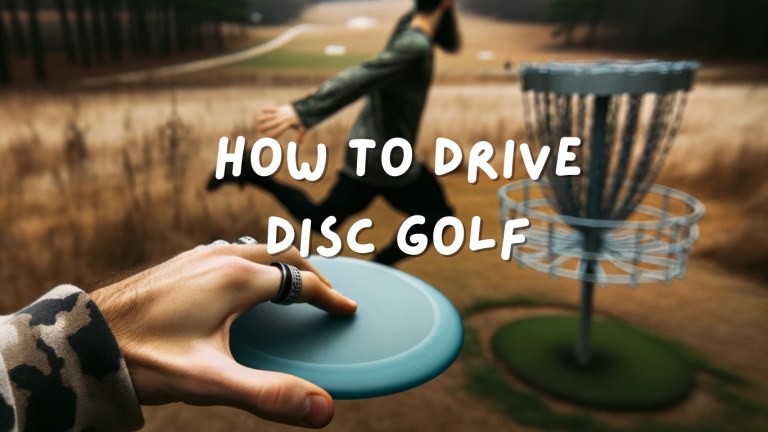How to Start a Disc Golf League? Expert Guide to Starting a Disc Golf League
How to Start a Disc Golf League? Launch a thriving disc golf league! Step-by-step guide & insider tips. Ever thrown a frisbee with friends and gotten competitive? That’s basically disc golf, and let me tell you, it’s a blast! But what if you want to take it to the next level and create a structured competition with a group of like-minded people? Well, buckle up, because I’m here to guide you through the exciting world of starting your very own disc golf league. We’ll cover everything from choosing a format to keeping players engaged, all to ensure your league thrives and becomes a local favorite. So, grab your discs, dust off your putting arm, and get ready to tee off on this incredible journey!
How to Start a Disc Golf League?
League? Disc Golf League? Tell me more!” That’s the reaction you’ll get when you announce your plans after reading this guide. I’m here to unleash your inner disc golf organizer and help you create a fun, competitive league that’ll bring your community together. We’ll navigate every step from choosing the perfect course to hosting epic end-of-season celebrations. Whether you’re a seasoned pro or a fledgling disc golfer, get ready to transform those casual rounds into a thriving, unforgettable league experience. Let’s unleash those chains and get started!
League Format: Choosing Your Competitive Style
Alright, so you’ve got the excitement brewing and a vision for your disc golf league. Now, it’s time to decide on the core structure: the format! This will determine how players compete and ultimately shape the overall experience. Let’s delve into the two main options and explore some additional considerations:
Singles vs. Doubles Leagues:
Singles Leagues: This classic format pits players against each other individually. It’s a fantastic option for showcasing individual skill and fostering a sense of personal accomplishment. Remember that weekend warrior I mentioned earlier who throws bombs? This format lets them shine!
Pros:
Emphasizes individual skill and improvement.
Easier to manage registration and scoring for smaller groups.
Cons:
Can be intimidating for newer players.
Less emphasis on the social aspect of the game.
Doubles Leagues:
Calling all teamwork enthusiasts! Doubles leagues pair players together, creating a dynamic and social experience. It’s a great way for beginners to learn from experienced players, and the camaraderie can be fantastic. Plus, who doesn’t love celebrating a clutch putt with your teammate?
Pros:
More social and welcoming environment, especially for beginners.
Encourages team strategy and communication.
Cons:
Requires finding reliable partners, which can be challenging.
Scoring can be slightly more complex.
Ultimately, the best format for your league depends on your goals and target audience. If you’re aiming for a competitive scene with seasoned players, singles might be the way to go. But if you want to prioritize fun, inclusivity, and fostering a social atmosphere, doubles could be the perfect fit.
Divisions (Optional): Leveling Up the Playing Field
Here’s a bonus consideration: incorporating divisions! This is particularly relevant if you anticipate a wide range of skill levels in your league. Dividing players into beginner, intermediate, and advanced categories can create a fairer and more enjoyable experience for everyone.
Think about it: a seasoned player wouldn’t find much joy in consistently crushing beginners. Conversely, a new player facing off against those same seasoned veterans might feel discouraged. Divisions help ensure everyone gets a chance to compete against players of similar abilities, keeping things exciting and fostering a sense of accomplishment across all skill levels.
You May Also Like To See: Pro Tips For Disc Golf in Bad Weather?
League Length & Schedule Options: Finding Your Groove
Now that you’ve chosen your format and potentially incorporated divisions, let’s talk about the duration and schedule of your league. This will depend on your time constraints, player availability, and overall vision.
League Length:
You have flexibility here! Leagues can run for weeks, months, or even a whole season. Consider your resources and player interest when making this decision.
Schedule Options:
Here’s where you get creative! Weekly matches are a popular option, but you could also explore bi-weekly rounds or offer open play windows for more flexibility.
Remember, the key is to find a schedule that works for both you and your players. Finding that sweet spot will keep everyone engaged and coming back for more disc golf fun.
Logistics & Planning: Gearing Up for League Success
Alright, we’ve chosen the format, and the competitive spirit is brewing! Now comes the nitty-gritty: the planning and logistics that will bring your disc golf league to life. Buckle up, because we’ll be covering everything from selecting the perfect course to fostering a thriving player community.
Course Selection: Finding the Sweet Spot
The course you choose is the foundation of your league. Here’s where you want to strike a balance between challenge and accessibility. Think about your target audience: are they seasoned veterans or enthusiastic newbies?
For Beginners:
If you’re expecting a lot of first-timers, prioritize a shorter course with open fairways and minimal obstacles. This will help new players feel comfortable and develop their skills without feeling overwhelmed. Think of local parks with beginner-friendly disc golf layouts.
For Mixed Skill Levels:
Consider a course with multiple tee pads offering different difficulty levels. This way, experienced players can test their skills on the longer tees, while beginners can enjoy a more relaxed round on the shorter ones. Many public courses offer this option!
Remember: Accessibility is key. Choose a course that’s easily accessible for players, with ample parking and amenities nearby.
Registration & Fees: Setting Up Your League Financials
Now, let’s talk about the practical stuff: registration and fees. Here are some things to consider:
Registration Process:
Make it easy for players to sign up! Utilize online platforms like UDisc (a popular disc golf app) to streamline the registration process. This allows players to register, pay fees, and track their scores all in one place.
Fees:
Fees can cover the cost of trophies, league supplies (like scorecards), or even include a player pack with a commemorative disc. Be transparent about what the fees cover and consider offering early-bird discounts to incentivize registration.
Sponsorship Potential:
Don’t be afraid to explore sponsorship opportunities with local disc golf shops or sporting goods stores. Sponsorships can help offset league costs and potentially provide additional resources like prizes or promotional materials.
Scoring & Handicapping (Optional): Keeping Things Fair
Scoring in disc golf is pretty straightforward: the player with the fewest throws on a hole wins. However, if you anticipate a wide range of skill levels, consider incorporating a handicap system.
Handicaps:
Handicaps are a numerical advantage given to lower-skilled players to level the playing field. This allows players of all abilities to compete and potentially win, fostering a more inclusive atmosphere. There are various handicap systems available online, so do some research and choose one that fits your needs.
Remember: Scoring and handicaps are optional, but they can be a great way to ensure everyone has a fair shot at winning and keeps the competition exciting.
Conclusion:
There you have it! With a well-defined format, a fantastic course, and a touch of planning, you’re well on your way to launching a thriving disc golf league. Remember, the goal is to create a fun and inclusive environment where players of all skill levels can compete, connect, and enjoy the amazing sport of disc golf. Now, grab your discs, gather your fellow disc golf enthusiasts, and get ready to tee off on a season of friendly competition and camaraderie!
FAQs:
Q1: How much does it cost to start a disc golf league?
Answer:
Costs can vary, but registration fees typically cover trophies, supplies, and potentially player packs. Explore sponsorships to offset costs.
Q2: What are the different formats for a disc golf league?
Answer:
Singles leagues pit players individually, while doubles encourage teamwork. Consider incorporating divisions (beginner, intermediate, advanced) for fairer competition.
Q3: What online platforms can I use to manage my disc golf league?
Answer:
UDisc is a popular option for registration, scorekeeping, and communication within your disc golf league.







